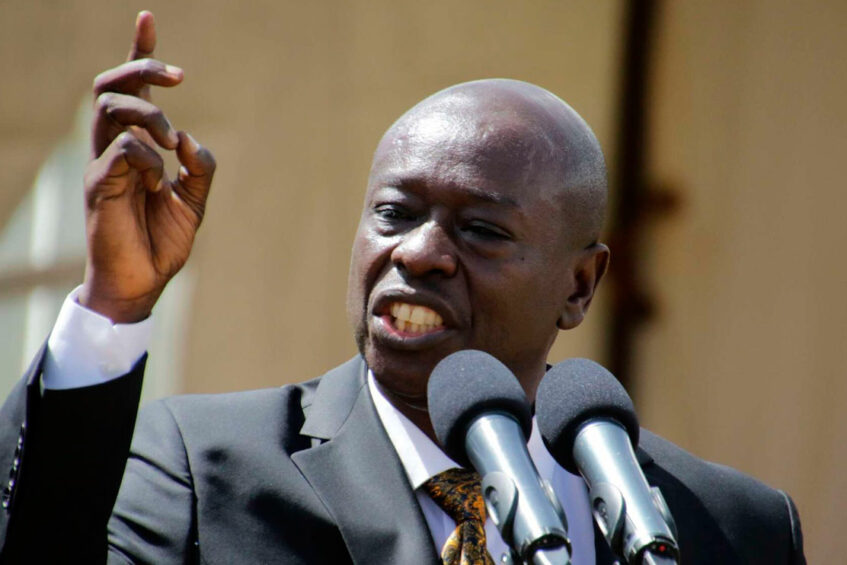Kenyan lawmakers have passed a motion to impeach Deputy President Rigathi Gachagua. A total of 281 members of parliament voted in favor of the motion, surpassing the two-thirds majority required.
This follows a lengthy impeachment hearing, during which Gachagua faced various allegations, including corruption, undermining the president, and promoting division along sectarian lines.
The motion will now be sent to the Senate, which will act as the trial court and deliver a final decision within 10 days. To remove the deputy president, the Senate also requires a two-thirds majority vote.
Gachagua appeared before the parliament on Tuesday, presenting evidence to refute the 11 charges against him. He has maintained his innocence, claiming he is acting in the best interests of Kenyans.
Despite the motion’s passage in the National Assembly, not all lawmakers supported it. Kirinyaga Woman Representative Jane Miana described the motion as “frivolous, baseless, and lacking in substance,” calling it a political ploy to target Gachagua for “being truthful.”
Deputy Minority Leader Robert Mbui criticized the focus on the impeachment, saying, “Mr. Speaker, I wish we could put the same energy we are using to remove one Kenyan into addressing the real issues we face—like the education sector, infrastructure, and the high cost of living. These are the matters that should command the attention of this house.”
Gachagua has denied all allegations, including claims that properties like Olive Gardens Hotel and Vipingo Beach Resort belong to him. He asserted that they belong to his late brother. Additionally, he rejected accusations that he pressured state officers for contracts and diverted funds.
The impeachment motion was introduced by Kibwezi West MP Mwengi Mutuse, who last week notified parliament of the 11 charges against Gachagua. The speaker of parliament, Moses Wetang’ula, officially informed members of the motion.
On Tuesday, Mwengi presented the grounds for impeachment, speaking for at least an hour. He argued that Gachagua had committed gross misconduct, insubordination, and undermined government decisions. He also accused Gachagua of owning 20 companies and using some of them to commit economic crimes.
As the National Assembly debated the motion, the process for removing Kenya’s deputy president, as outlined in the constitution, unfolded. After both sides present their arguments, the members will vote. If at least 233 MPs support the motion, it will be sent to the Senate within two days. Should it fail to reach that number, the matter will be dropped. If 117 MPs vote against it, the deputy president will retain his position.
Once the motion reaches the Senate, the Senate Speaker will convene a session within seven days. The Senate may either establish an 11-member committee to investigate or address the matter in plenary. The Senate must conclude the investigation, hearings, and vote within 10 days. At least 45 senators must vote in favor of the charges for the deputy president to be removed from office.




















